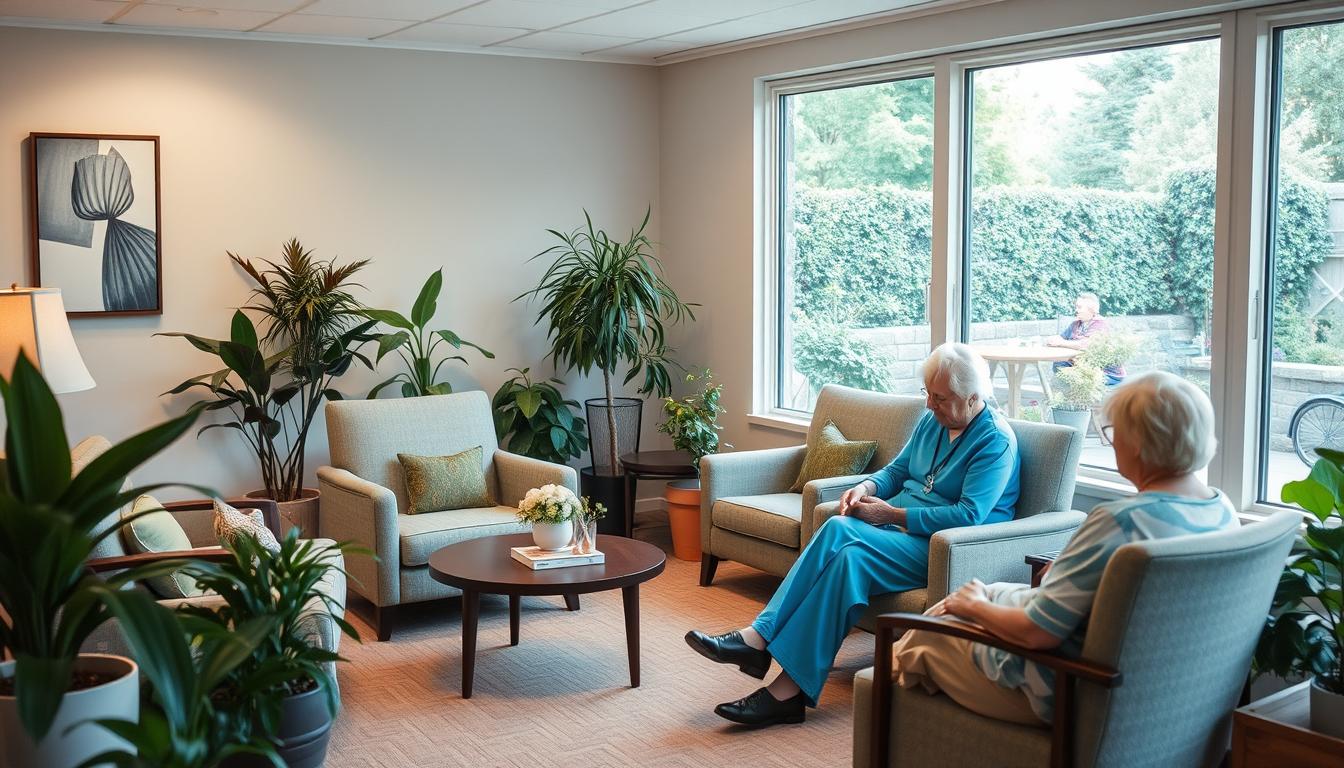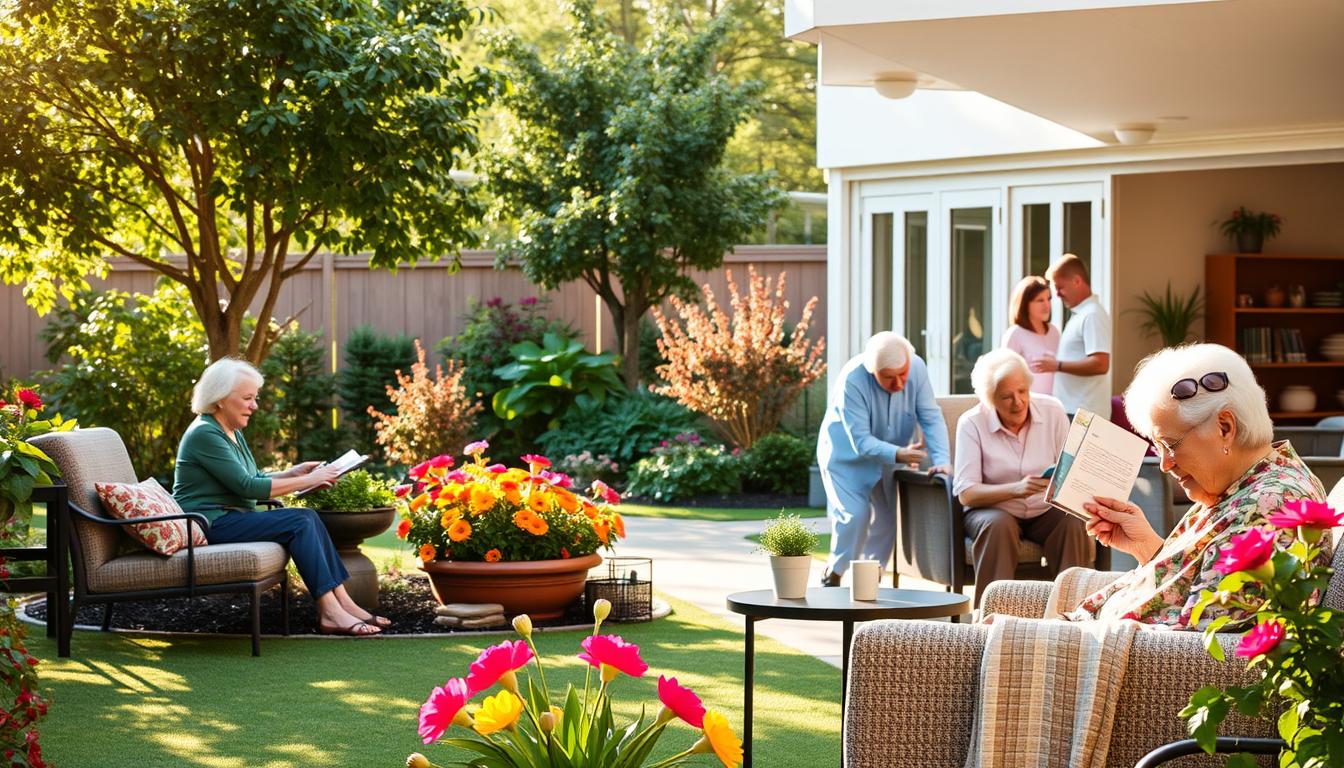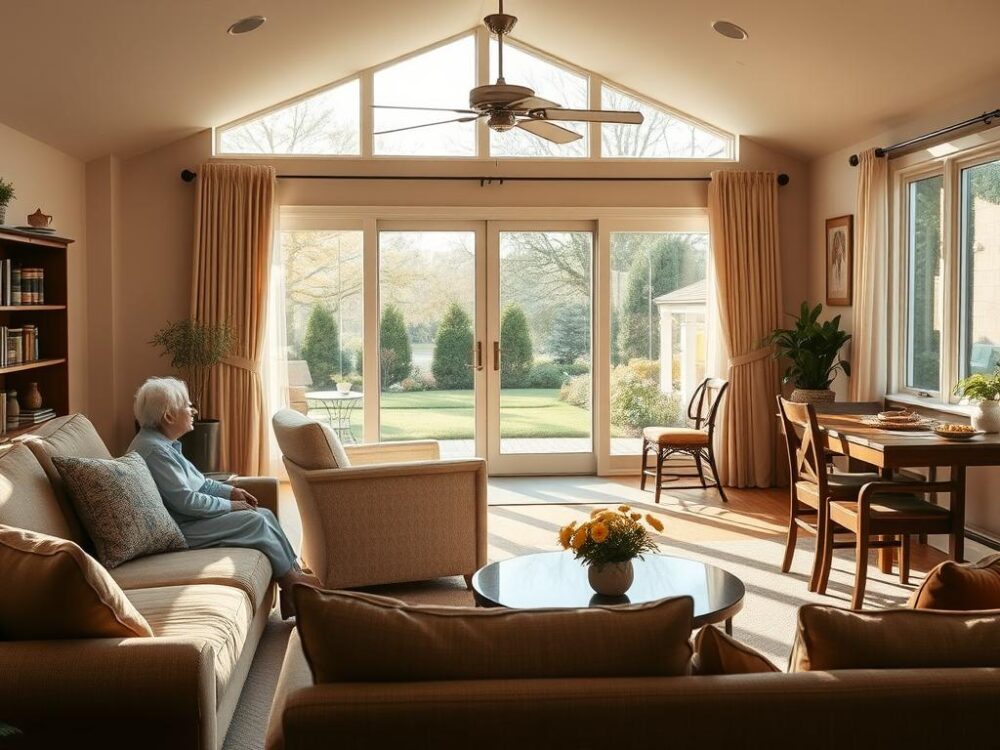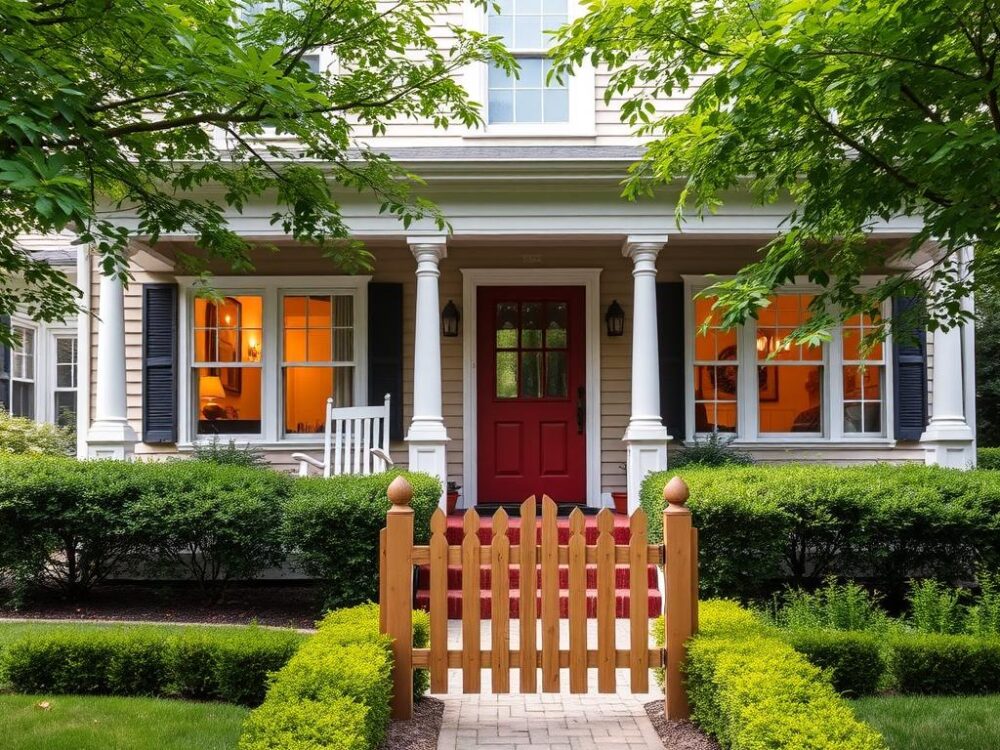
Senior Transportation Services for Elderly Care
October 2, 2024
Comprehensive Senior Care: Support for Aging Well
October 2, 2024Did you know 90% of adults over 65 want to stay in their homes as they age? This shows how important it is to have good ageing care services. As more people age, the need for senior care and support grows. It’s critical to know what’s out there to help improve life for older adults.
Ageing support services offer many options to help seniors stay independent and proud. These include help at home and programs in the community. They aim to meet the unique needs of older people so they can live well in their later years.
Medicare only covers some home health services, and Medicaid varies by state. Many seniors use private insurance and long-term care policies and volunteer to help them get the support they need. Knowing these options is essential for planning and making good home-aging choices.
Looking into senior care, you’ll find services for all needs. There are meal delivery programs and emergency alert systems, among others. Learning about these can help you prepare for the future and ensure a good quality of life as you or your loved ones age.
Understanding the Spectrum of Aging Care Services
The senior care spectrum offers a wide range of services for older adults. Knowing the different options is essential for finding the best care for your loved ones.
Defining comprehensive care for seniors
Comprehensive care for seniors is more than just medical help. It covers physical, emotional, and social needs. In Wisconsin, Family Care under Medicaid helps with assisted living costs when personal assets are gone. This shows how care can include financial support, too.
The importance of tailored services for older adults
Every senior has their own needs, making tailored services key. Assisted living in Wisconsin offers care based on each person’s needs. Some places, like Residential Care Apartment Complexes (RCAC), provide up to 28 hours of care weekly. Community-Based Residential Facilities (CBRF) offer even more personalized care.
Critical components of a holistic care approach
A holistic eldercare approach includes several essential parts:
- Personal care assistance
- Healthcare management
- Nutritional support
- Social engagement opportunities
- Safety measures
For example, Skilled Nursing Facilities provide 24/7 care with nurses, handling complex medical needs. On the other hand, Sheltered Care Facilities focus on the social needs of seniors who are mostly independent but need daily help.
Ageing Care Services: A Complete Overview
Aging care services provide a wide range of support for seniors. They help older adults stay independent and enjoy a good quality of life. You might need help with daily tasks, healthcare, or social activities as you age.
Senior care options include:
- In-home assistance
- Meal delivery programs
- Transportation services
- Healthcare management
- Financial and legal aid
- Caregiver support
- Social engagement opportunities
Eldercare services come from various sources, including government agencies, non-profit groups, and private companies. They aim to create a support network for seniors to age comfortably and safely.
Did you know that over 86% of senior living communities with 20+ residents were toured by A Place for Mom in 2017? This highlights the importance of exploring different ageing support programs. It’s critical to think about your unique needs when choosing services.
Most people over 65 will need some care assistance. Home care services can help you stay independent longer. Personal care services range from a few hours daily to 24/7 live-in care. Health services, like occupational therapy and nursing, can also be provided at home.
When choosing senior care options, involve your family and healthcare professionals. Their advice is valuable in making informed decisions about your living situation and care needs.
Navigating Local Resources for Senior Care
Finding local senior resources can be challenging. The ageing services network has many options for older adults. Let’s look at critical organizations that offer community eldercare services.
Area Agencies on Aging (AAA)
AAAs are essential in the ageing services network. They help adults 60 and older, their families, and caregivers by offering meal programs, transportation, and help for caregivers.
Aging and Disability Resource Centers (ADRC)
ADRCs are like one-stop shops for ageing and disability services. They give info on local senior resources and help with complex care systems. ADRCs also offer benefits such as counselling and care coordination.
Local Intellectual and Developmental Disability Authorities (LIDDA)
LIDDAs focus on seniors with intellectual or developmental disabilities. They provide community eldercare services tailored to unique needs. This includes residential support and day programs.
Local Mental Health Authorities (LMHA)
LMHAs offer mental health services for older adults. They provide counselling, medication management, and crisis intervention, which is key to supporting seniors’ emotional well-being.
Stats show the importance of these resources. 27% of U.S. adults 60 and older live alone, and nearly 22 million face financial insecurity. Using local senior resources allows older adults to improve their quality of life and stay independent.
In-Home Support Services for Aging Adults
As they age, more seniors want to stay in their homes. Home care services are designed to meet their needs. This way, they can remain in their own space while getting the help they need.
Personal care is a big part of home support. Caregivers help with bathing, dressing, and grooming. They also prepare meals to keep seniors well-nourished. For those with health issues, managing medications is part of the care.
In California, the IHSS program offers extensive support. It helps seniors stay at home instead of going to care facilities, and IHSS checks in regularly to ensure that seniors get the right care as their needs change.
When looking into home care, know what’s out there:
- Individual providers hired by seniors
- Contracted IHSS providers
- County homemaker employees
- Professional agencies like Senior Helpers
Senior Helpers is a big name in home care. They specialize in Alzheimer’s and Parkinson’s care, offer companionship, and help with daily tasks. Their caregivers are well-trained to support seniors.
Contact your local Area Agency on Aging or use the Eldercare Locator to find the proper home support. These resources can help you find services that fit your needs for ageing in place.
Enhancing Senior Nutrition Through Meal Services
Senior nutrition is vital to staying healthy and independent as we get older. Many places offer meal services to help meet the dietary needs of older adults.
Home-delivered Meal Programs
Meal delivery is vital for elderly people. San Bernardino County’s Elderly Nutrition Program helps those 60 and older. Each meal gives at least 1/3 of the Daily Reference Intakes, ensuring seniors get the nutrition they need.
Community Dining Options
Community dining programs let seniors enjoy meals and socialize. Meals are served at nutrition sites, helping fight hunger and loneliness. These programs focus on assisting low-income minorities and those in rural areas.
Nutritional Counseling and Education
Many places offer educational programs on healthy eating. For example, the We Can! program teaches about Fiber Fitness, Nutrition Label Reading, and Portion Distortion. These programs help seniors make better food choices and stay healthy.
These meal services aim to tackle food insecurity and improve health for older adults. They ensure everyone gets help, no matter their ability to pay.
Transportation Solutions for Older Adults
As you age, staying mobile is critical for independence and happiness. Senior transportation services are crucial for older adults to keep their lifestyle. With 1 in 5 Americans expected to be 65+ by 2020, the need for elderly mobility solutions is growing fast.

Accessible transit options meet different needs and preferences. Public transportation is a budget-friendly choice for those who can’t drive. It has fixed routes and schedules, making planning straightforward. Para-transit services must cover more areas within 3/4 mile of bus routes or rail stations.
Private ride services for seniors cost between $20 and $40 per ride. Ride-hailing apps like Uber and Lyft offer on-demand rides. Volunteer programs provide free transportation using drivers’ vehicles.
Senior living communities often include transportation in their monthly fees. These services may use handicap-accessible buses for medical visits. When picking a transportation option, look at prices, pick-up spots, and schedules. Ask about safety, elevator access, and help at public transit stops.
By looking into these various elderly mobility options, you can find the best one for your independence and community connection.
Healthcare Management for Seniors
As you get older, your health needs grow more complex. Senior healthcare covers many areas to keep you well. Let’s look at some essential parts of managing health for older adults.
Home Health Care Services
Home health services are essential for seniors. They bring medical care to your home. This way, you can get treatment in your own space.
Nurses and therapists come to your home. They provide care that fits your needs.
Medication Management Assistance
Handling many medications is complex. Medication management helps you take the right drugs at the right time. It’s crucial for keeping you healthy and avoiding problems from wrong medication use.
Chronic Condition Support
Many seniors deal with chronic conditions like diabetes or arthritis. It’s important to get ongoing care and monitoring. Healthcare experts can help with lifestyle changes and check your progress.
El Camino Health has special care for adults over 55. They offer mental health support and help with common conditions like cancer and joint pain.
Good healthcare management can significantly improve your life as you age. Look into the resources in your area to support your health and keep you independent.
Financial and Legal Assistance for Aging Individuals
Managing money and legal issues can be challenging for seniors. Elder law specialists, senior financial planners, and benefits counsellors are key to helping older adults manage their affairs.
Elder law attorneys help with estate planning and power of attorney. They protect seniors’ rights and ensure their wishes are followed. In the U.S., the Older Americans Act funds about 1,000 legal services. They offer nearly one million hours of legal help each year.
Senior financial planning is vital for a stable retirement. Experts guide you through tough financial choices. In New York State, 4.6 million older adults could benefit from these services.
Benefits counselling is crucial for seniors dealing with government programs. Counsellors assist with:
- Understanding Social Security, Medicare, and Medicaid
- Accessing veterans benefits
- Applying for unemployment compensation
- Exploring health care cost reductions (up to $7,000 in some cases)
Caregiver Support and Respite Services
Caring for an ageing loved one can be rewarding yet challenging. It’s essential to have caregiver resources and family support. New York State has programs to help those caring for seniors.
Training Programs for Family Caregivers
Area Agencies on Aging (AAAs) offer training through the National Family Caregiver Support Program (NFCSP). This program helps caregivers learn new skills, especially for those caring for loved ones with Alzheimer’s disease.
Respite Care Options
Respite care gives caregivers a much-needed break. New York State funds ten community-based respite programs across 30 counties. These services include:
- Adult day services
- In-home care
- Overnight respite

Priority for respite care is given to frail or disabled adults over 60. The Expanded In-Home Services for the Elderly Program (EISEP) also offers respite services for eligible seniors.
Support Groups and Counseling
Counselling and support groups can provide emotional support to caregivers. These services help caregivers deal with the challenges of caregiving. The NFCSP and local AAAs provide these important resources to support caregivers’ mental health.
By using these caregiver resources, families can better care for their loved ones and themselves. Remember, asking for help is a sign of strength, not weakness.
Social Engagement and Community Involvement for Seniors
Staying connected is vital for older adults’ well-being. Senior social activities and community engagement offer numerous benefits, including improved mental health and increased life satisfaction. Let’s explore ways to boost elderly socialization and create meaningful connections.
Community centres serve as hubs for senior social activities. These spaces offer diverse programs, from art classes to book clubs, catering to various interests. Joining these activities helps older adults make new friends and stay mentally active.
Volunteering is another excellent way to foster community engagement. It gives seniors a sense of purpose. It allows them to contribute their skills and experience. Many organizations welcome senior volunteers, offering mentoring, tutoring, or environmental conservation opportunities.
Group outings and organized trips provide exciting chances for elderly socialization. These could include visits to museums, theatres, or local attractions. Such events not only entertain but also encourage social interaction among participants.
Virtual programs offer a solution for those with limited mobility. Online classes, discussion groups, and social media platforms help seniors stay connected from home. These digital options have become increasingly popular, especially since 2020.
- Join a local senior centre for diverse activities
- Volunteer in your community
- Participate in group outings or organized trips
- Explore virtual socialization options
Remember, staying socially active is vital to a fulfilling retirement. By engaging in these activities, seniors can combat loneliness, maintain cognitive function, and enjoy a higher quality of life. Don’t hesitate to contact local resources or family members for support in finding suitable social opportunities.
Safety and Emergency Preparedness for Older Adults
As we age, staying safe is crucial. Senior safety is more than just avoiding accidents. It’s about being ready for emergencies. Let’s look at important safety and emergency readiness tips for older adults.
Emergency Medical Alert Systems
Medical alert systems are essential for senior safety. They let you call for help if you fall or have a medical emergency. Many offer wearable devices and 24/7 monitoring. Though Medicare doesn’t cover them, some Medicaid plans might.
Fall Prevention Strategies
Falls are a big worry for older adults. Taking steps to prevent falls can significantly reduce risks. Here are some tips:
- Remove tripping hazards like loose rugs
- Install grab bars in bathrooms
- Improve lighting in your home
- Engage in balance-enhancing exercises
Home Safety Assessments
A detailed home safety check can spot potential dangers. It might suggest changes to make your home safer. Focus on these areas:
- Securing loose handrails
- Adding non-slip mats in bathrooms
- Ensuring proper lighting in all areas
- Organizing frequently used items within easy reach
Being ready is essential for safety. Keep a 30-day supply of medications. Make an emergency contact list and plan. Have basic emergency supplies for your home and car. These steps help you handle unexpected situations and keep your independence.
Conclusion
Comprehensive senior care is crucial for improving the lives of older adults. The ageing services network is vital in supporting seniors, especially considering 82% of seniors have chronic diseases requiring ongoing care. With seniors visiting an average of eight doctors annually, the need for coordinated care is evident. This highlights the importance of having a system that works together.
It’s also important to note that 27% of seniors living at home require assistance with daily tasks. As the number of seniors increases, so will the demand for health and long-term care services. The ageing services network must continue to improve to meet these needs. Studies demonstrate that the quality of healthcare, seniors’ quality of life, and their satisfaction with their care are highly significant. We can help seniors age with dignity and comfort by focusing on these aspects.




